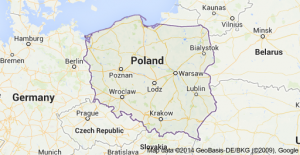Trooper Mark Nytco was standing in line at a coffee shop when I realized I had not interviewed a policeman and needed to do so. After obtaining permission from his captain, we agreed to meet at a favorite Mexican restaurant, Alvarez. 
I ordered pork tacos, Mark was decisive: chicken fajitas.
He is just as confident about performing his duties as an Illinois State policeman. This tall, fair, handsome man has serious eyes with a steadying effect. 
“When you stop people, are they respectful?” I began.
“Yes, very seldom do I have any problems with people.”
“Are you aggressive?”
“When I have to0 be. You have to know what you are dealing with. I do not take any disrespect from people. I am respectful to them. If they cross the line, then all bets are off.”
“What’s the most fulfilling crime-stopping you do?”
“It’s hard to tell, because it’s pretty much every day. Whether you stop a person with a gun in their car or whether you stop a drug dealer with a large amount of narcotics. Who knows? You think, well, maybe you saved something today from using the stuff.”
“Do you get involved with their families?” 
“Sometimes I probe, try to find out their background, what kind of person they are, what kind of home they come from. Sometimes it is shocking when you call a parent:
‘Can I call your mom to pick you up?’ They say, ‘OK, go ahead, she won’t care.’ The parent often says, ‘Can’t you charge him with something so you can keep him overnight in jail?’ I look at this kid and think, no wonder this kid is here on the street.”
“What’s the solution?” I ask.
“It all boils down to family life.”
Mark knows about family. He was 16 when he arrived in Chicago on a September Thursday in 1974.
“I was born in Poland about 80 kilometers east of Krakow. I was brought up under communism, but at home, I knew better than what the officials at school said. Parents and grandparents told me different. 
Mexican guitar music filled Alvarez’s small dining area, but I was captivated by the Polish accent, the surprising story unfolding. He paused briefly for a bite of sizzling chicken or bell pepper, but he was intent on continuing. He had important things to say.
“When I was in school, I listened to the version of history that this teacher had, totally opposite with what my parents and grandparents taught me, or what they went through. For instance, my grandfather was part of the underground. Fought the Nazis,” he explained.
“After the Polish army fell in World War II, when the Nazis invaded Poland, a lot of officers got captured by communist Russians. About 10,000 were executed by Stalin. My grandfather was able to escape, but somehow the Gestapo found out about their organization. Under some kind of torture, they were able to get all the n ames of all the conspirators from this one person, and overnight they rounded up 236 of them, including my grandfather. They arrested him and eventually transported them to Auschwitz. A few months later, my grandfather was executed there, in Cell Block 13.”
He broke through to say, “I don’t know if you have ever visited Auschwitz, but you should. I think everybody should.”
“How did that change you? I asked.
“When you’re kid, you think everything is beautiful. Then you listen to adults–not reading a book or watching a movie. I had an eyewitness.”
His aunt survived three concentration camps.
“What they did to them every day, how they made them stand out in 10 below zero, in an outfit like P.J.’s and wooden shoes. Made them stand there for 10 hours at a time. And they didn’t care if they dropped dead. You were basically to die. They didn’t care. I realized how evil people can be to one another.
“This has affected how you do your job?”
“I understand when I come across a lot of people, and there are more and more people who are from former communist countries. I can understand why they’re so distrusting of police, because I can still remember what the police over there were like.”
“You can be more forgiving?”
“Yes. I can relate to them. I know why they are like that, because their life over there was hell. The policing there wasn’t to protect them, but to keep them in line.”
“Here you’re the good guy,” I said.
He smiled. “Yeah, I like to think so. And, this job doesn’t pay much. You have to love this job; you have to sacrifice; but that’s where dedication comes in. You have to remember why you took this job.”
